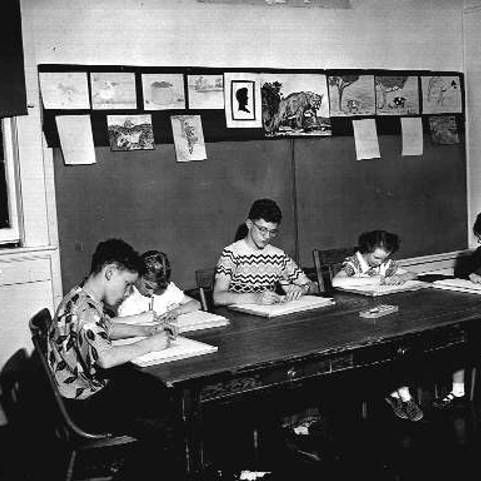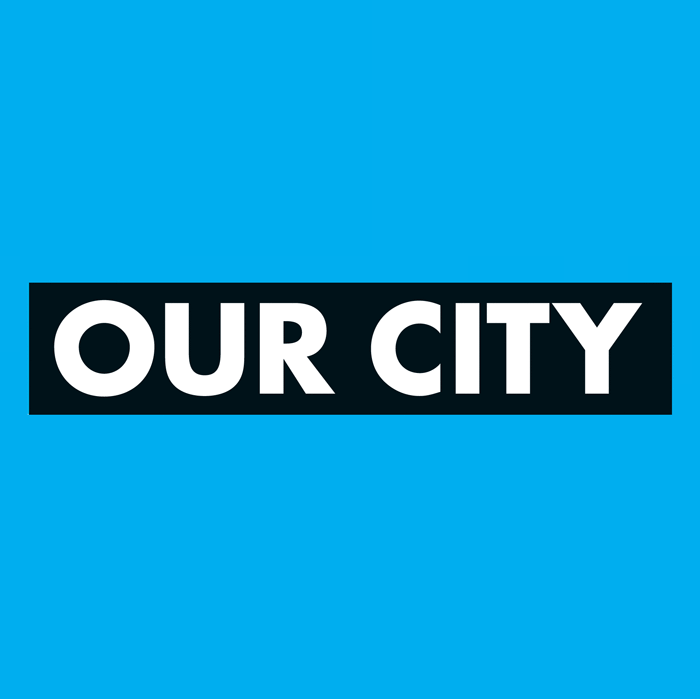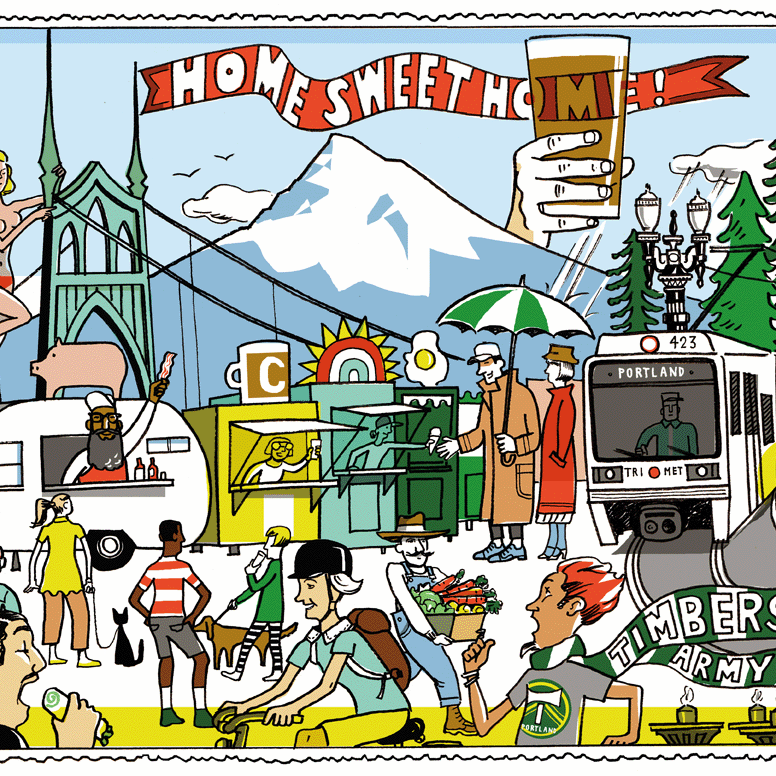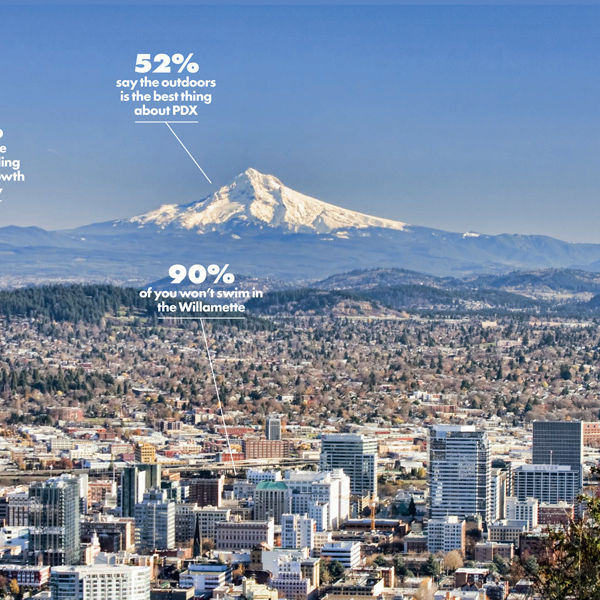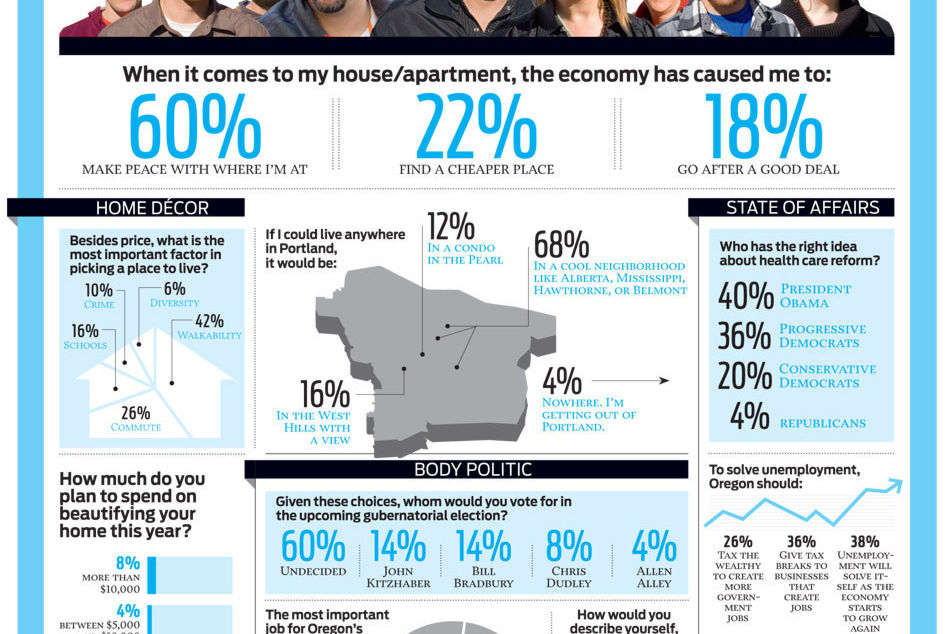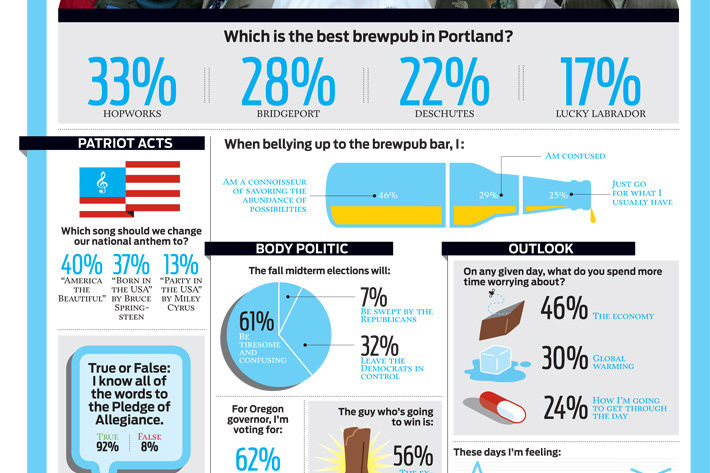Poll Positions
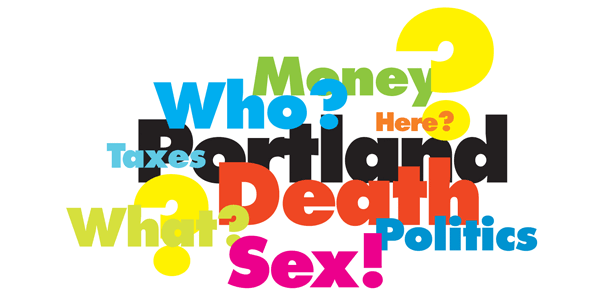
In these final days of deciding who will run the country—and the city—for the next four years, every hour spits out a new survey of the electorate’s razor-thin fickleness. So, you might ask, why would a city magazine commission yet another poll?
The answer is easy: at a time when all eyes are on Obama, Romney, Hales, and Smith—or, really, on a wishy-washy micro-minority who will decide who wins—we felt an urge (if not a desperate need) to step back, turn around, and look at the bigger us: in a sense, our neighbors. With the help of DHM Research, which has been polling Portland attitudes for 30 years, we asked some basic questions, such as: Who among us believes in a god, feels underpaid, spanks their kids? Who thinks the “creative economy” is real? And, of course, who’s having lots of sex—or none at all?
How surprising you find the results of our poll likely will depend on how long you’ve lived here. Despite our progressive, liberal, green, crunchy, youthful, fertile image, long-timers know that, deep down, Portland can be fairly (lowercase-c) conservative. That realization dims the city’s luster for many a newcomer. But in important ways, our collective ambivalence—especially about certain brands of ambition—steers us clear of the fads that cookie-cut so many other cities. After all, 68 percent of us would “feel rich” with $100,000 or less in the bank.
Yet our poll also discovered that some long-held assumptions about our region are fraying, particularly around the questions about future growth. Consider that when asked what the best thing about Portland is, more than 70 percent said either the proximity to outdoor activities or the food scene. Yet 61 percent don’t care about or would happily expand the urban growth boundary—one of the key ingredients that has kept so much fresh food within easy picking distance and has made the greater outdoors such a quick escape.
Between the time I type the final words of this column and you get to read it (about four weeks—even if our managing editor always wishes it were five), stats of all sorts will have been drilled deep into every undecided voter’s mind. A single wrong chirp by one candidate or another (with any luck, caught on a microphone someone forgot to turn off) may have decided our fates for the next four years. Hopefully, our survey of Portland’s values offers a longer, wider view. If nothing else, know that three out of four of your neighbors plan to stick it out in the Rose City for the next 10 years, even though nearly as many think the Big One is coming in the next 25.

